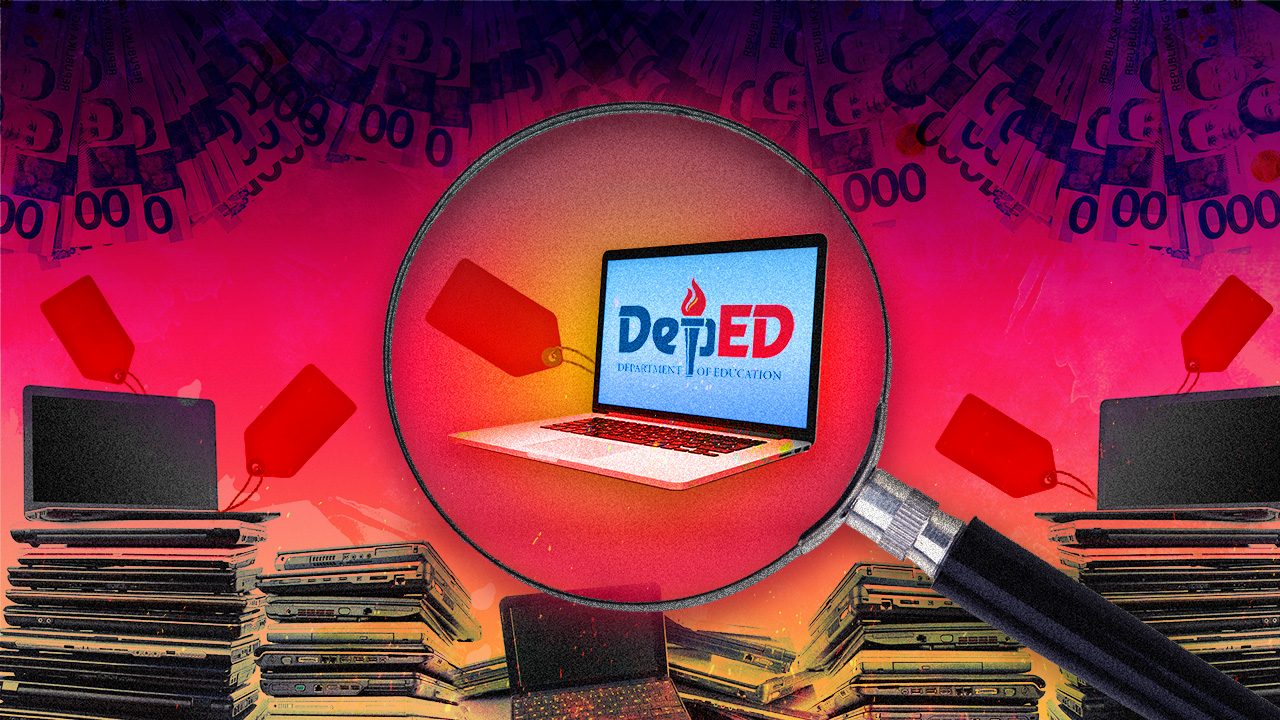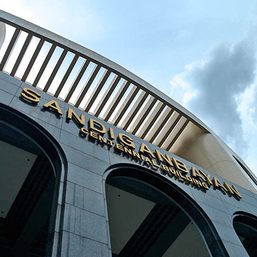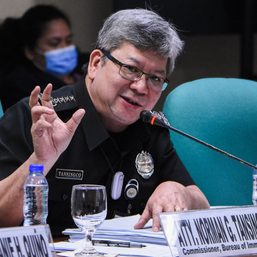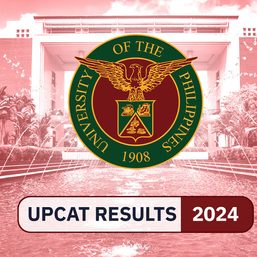SUMMARY
This is AI generated summarization, which may have errors. For context, always refer to the full article.

AT A GLANCE:
- Public schools reported not receiving laptops they were supposed to get during lockdowns.
- Laptops procured by the Department of Education (DepEd) for public schools ended up being sold in retail stores and on Facebook marketplace.
- Former DepEd undersecretary Alain Pascua, who chaired the Bids and Awards Committee, says the problems “arise from the implementation of the contract that got caught in the middle of the transition of administrations.”
First of 2 parts
MANILA, Philippines – Negligence and apparent corruption at the Department of Education (DepEd) under the Duterte administration caused laptops intended for public school teachers to end up being sold in retail stores.
At the center of the loss of these computers is the award by DepEd of a P667-million contract in 2021 to logistics provider, Transpac Cargo Logistics Inc. (Transpac). It’s a small logistics company based in Las Piñas, Metro Manila, whose subcontractors sold laptops that belonged to DepEd, a source familiar with Transpac’s logistics operations, said.
Equally responsible is DepEd itself, which, at the transition of the Duterte and Marcos administrations, failed to pay its logistics provider, according to a Transpac demand letter obtained by Rappler. The contractor played a critical role in the distribution to public schools of billions worth of public property.
While Transpac failed to prevent its subcontractors from selling laptops, DepEd, for its part, moved too slowly to exact accountability and preserve government property paid for with public funds.
In October 2022, after investigations were conducted by the department’s Central Visayas office, at least 100 laptops were discovered to have been sold in a surplus store in Cebu.
Red flags were raised then when a buyer in Cebu who was looking to purchase a Coby NBPC 1958 laptop chanced upon one being sold for only P9,999 at the Mandaue City branch of HMR Trading Haus, a national surplus store.
It would have been a good purchase except that it bore the markings of DepEd property that carried the Coby brand in cyan blue.

At least four other similar looking Coby NBPC 1958 laptops being sold in another HMR store in Rizal province were inspected and checked by Rappler against serial numbers of laptops known to have been supplied to DepEd. We confirmed them to be laptops intended for public school teachers.
When asked several times in December 2022 how many DepEd laptops were sold in HMR, company executives declined to respond to Rappler’s queries.

According to a contract Rappler obtained, a computer laboratory package that consisted of a laptop, Smart TV, and lapel cost P53,365. An informed source familiar with the pricing pegged the unit price of a laptop at about P27,780 – almost triple the P9,999 selling price in the market.
In December, too, the Senate blue ribbon committee wrapped up its investigation into a separate mess: the P2.4 billion worth of outdated and overpriced laptops flagged by the Commission on Audit. The Senate panel found that the deal was overpriced by at least P979 million.
These two instances are not the first time for DepEd to be caught in the crosshairs of controversy but the sale of government property in a surplus shop begged for an explanation.
Multi-billion DepEd computerization program
Computerization in public schools is not a recent development. As early as 2004, the DepEd – under the administration of Gloria Macapagapal-Arroyo – already had in place a computerization program for public schools.
In June 2010, under the Benigno Aquino III administration, guidelines for the implementation of what was called the Department of Education Computerization Program (DCP) were released. This multi-billion-peso annual initiative aimed to improve access to technology by thousands of public schools across the Philippines, empowering them to “meet the challenges of the 21st century.”
A decade later in 2020, also the year when a strict and severe pandemic lockdown was declared by then-president Rodrigo Duterte, as many as 11,495 public schools had been eyed as DCP beneficiaries.
Invitations to bid were issued by DepEd that same year to provide, among others, laptops to mobile teachers and computer laboratory packages to secondary schools. Contracts were signed in February 2021, with deliveries expected by end-2021 till January 2022.
The 2020 DCP package contracts were worth almost as much as the P2.4-billion irregular Dell laptop deals. Amounting to about P2.34 billion, the DCP contracts allocated P1 billion for the purchase and distribution of Coby laptops and other gadgets.
In the past, DCP suppliers took charge of delivering their products directly to public schools across the country. Schools had no choice but to accept what was delivered to them even if these were defective.
A Rappler source with first-hand knowledge about the procurement process said that when suppliers would deliver direct to schools, there were instances when, owing to “lack of quality control,” schools ended up with items like chairs and tables that were different from what they were supposed to receive.
The problem of delayed deliveries and lack of accountability have been long-running problems of the DCP program, too, according to the Commission on Audit’s (COA) 2020 report.
According to the same COA audit, only 7,555, or 16.29% of the 38,827 revised targets of the DCP packages for the years 2018 to 2020, were delivered. Enlisting a third-party logistics provider became the DepEd’s solution to this problem.
“So under [then-education secretary Leonor] Briones, they decided to help ensure better control of what is delivered by putting up regional warehouses where the supplier will now be asked to deliver,” the same source said.
Multiple projects
In October 2021, DepEd contracted a logistics service provider to store various supplies and equipment in regional warehouses spread across the country, and to deliver them to public schools.
DepEd’s Bids and Awards Committee issued the Notice of Award for the P671-million “call-off”contracts to Transpac on September 8, 2021. This type of contract allows a government agency to award a supplier multiple projects without having to hold multiple biddings.
The contract not only put Transpac in charge of warehousing and distribution of laptops, but also tasked the contractor with the deliveries of classroom furniture, technical vocational, livelihood, science, and math equipment.
The chairperson of the Bids and Awards Committee at the time was Undersecretary Alain Pascua – the same DepEd official, who, along with other ranking education officials – was put in the hot seat for signing off on the procurement of the overpriced Dell laptops.
In a text message to Rappler on March 6, Pascua, however, said that the problems with Transpac “arise from the implementation of the contract that got caught in the middle of the transition of administrations. I am no longer aware of the decisions and policies of the new and present administration.”
The former undersecretary defended the award to Transpac, saying he did not believe there was anything anomalous about the contract. But a number of schools never received their laptops, even over a year after the lockdowns ended.
One such school was in the province of Guimaras, a mostly rural and small island off the coast of Iloilo. One public school teacher told Rappler they waited patiently for a DCP package worth P50,000 to arrive. But it never did.
Unable to wait for their computers that didn’t seem to be coming, teachers resorted to taking loans to be able to get their own laptops.
“Puro utang ito, hanggang ngayon, binabayaran pa (These laptops we are using, we paid for through loans, and we are still paying for them until now),” the teacher, who did not want to be identified, said. The laptops were the same ones they used during the lockdowns.
To get a rough idea of just how many laptops did not make it to their intended schools, Rappler obtained the full list of the 11,495 schools that were supposed to receive them and did an informal survey, making 646 calls to schools in 32 different provinces and seven different regions from Northern and Central Luzon and all of the Visayas region. Rappler focused its informal survey on provinces whose schools were assigned the Coby DCP packages.
Of the 646 calls made, 139 answered. Of the 139 who answered, at least 30 schools, or about 22% of schools surveyed by Rappler, said they did not receive their DCP laptops.
The incidents of lost DepEd laptops mirror violations of the Anti-graft and Corrupt Practices Act, also known as Republic Act 3019. The department under the Duterte administration chose a service provider that proved incapable of fulfilling its contractual obligations that resulted in the massive waste of public funds.
Section 3 of RA 3019 explicitly forbids a public official from entering on behalf of government into “any contract or transaction manifestly and grossly disadvantageous to the same, whether or not the public officer profited or will profit” from these.
The same law regards as corruption neglect or refusal by a government official to act “within a reasonable time on any matter pending before him” to obtain material benefit or advantage “or for the purpose of favoring his own interest or giving undue advantage” to any other interested party.
While DepEd sought to solve delivery problems from the past by getting a third party to handle logistics, it wound up creating a different set of problems for itself. (To be concluded) – with research by Ailla Dela Cruz/Rappler.com
NEXT: Part 2 | Tiny logistics firm bags P667-million DepEd deal – and fails to deliver
Add a comment
How does this make you feel?





![[Time Trowel] Mentorship matters](https://www.rappler.com/tachyon/2024/04/mentorship-matters.jpg?resize=257%2C257&crop_strategy=attention)




There are no comments yet. Add your comment to start the conversation.